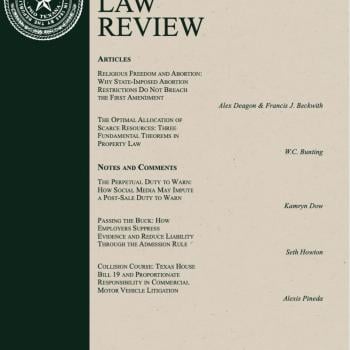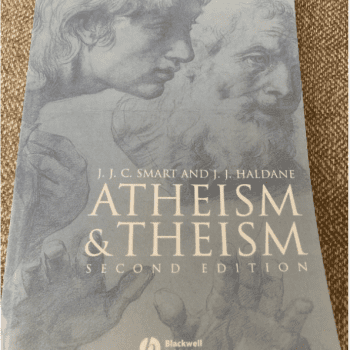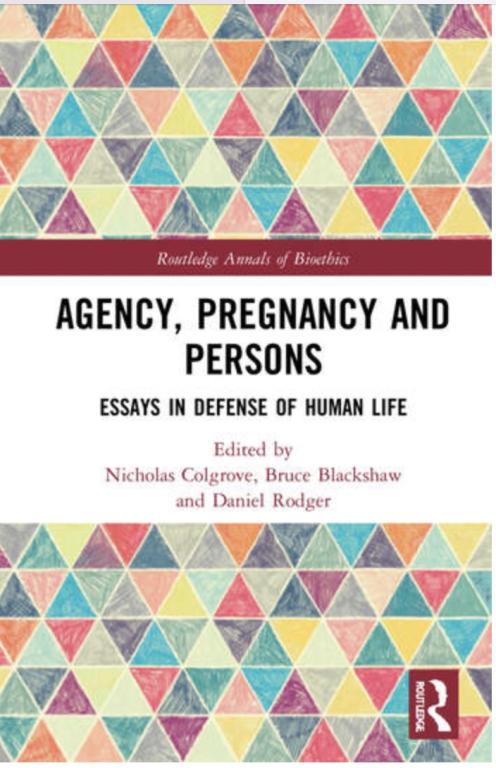That is the title of an article I published in the Summer 2010 issue of Ethics & Medicine: An International Journal of Bioethics (vol. 26.2). (The title, if you have not noticed yet, is from a line in the Bob Dylan song, “Dignity”). Here’s how the article begins (endnotes omitted):
In March 2008, the President’s Council on Bioethics published a volume entitled, Human Dignity and Bioethics. It consists of essays penned by council members as well as other scholars and practitioners invited to contribute. As one would guess, the idea of human dignity and what it means for bioethics, both in theory and in practice, is the theme that dominates each of the works contributed to this impressive volume. But for those who have been following or participating in the interdisciplinary and multidisciplinary world of secular bioethics during the past fifteen or twenty years, the insertion of the idea of “human dignity,” or even the word “dignity,” as the anthropological foundation of bioethics is highly unusual. Much of the cutting edge literature in bioethics, with few exceptions, tends to employ the language of modern political theory and contemporary analytic political philosophy and jurisprudence. So, for example, one finds in these cutting-edge works discussions about the meaning and implementation of the principles of autonomy, justice, nonmaleficence, and beneficence, as well as calls for the application of these principles to what constitutes physician neutrality, informed consent, and patients’ rights. This project often goes by the name principlism. There is, of course, much that this project has contributed to the study and practice of bioethics. For each principle and its application has a long and noble pedigree about which many of us hold a variety of opinions. But what distinguishes principlism from the concept of “human dignity,” and what makes this central concern of the council’s volume so astounding, is that advocates of principlism typically intend for it to be a means by which a physician, ethics committee, nurse practitioner, general counsel, etc., need not delve into the metaphysical question for which “human dignity” is offered as a partial answer, namely, “Who and what are we, and can we know it?
To put it another way, if bioethics commits itself to the idea that “human dignity” is essential to its practice, as the President’s Council suggests, it follows that bioethics must embrace a philosophy of the human person, a philosophical anthropology, if you will, that can provide substantive content to the notion of “human dignity.” But such a suggestion seems to run counter to two ideas that are dominant in the secular academy: (1) Enlightenment Liberalism, and (2) Scientific Materialism.
Enlightenment Liberalism is, roughly, the view that a state that aspires to justice and fairness ought not to embrace one view of the human person as the correct view because to do so would be to violate the principles essential to liberal democracy. This is why the principles central to principlism, such as autonomy and justice, are almost all procedural in their application. That is, when they are applied and practiced correctly, they commit the relevant medical personal and institution to as minimal an understanding of the human person and her good as possible. Now, as I point out below, I think that this is actually false. In fact, secular bioethics does commit its practitioners to a substantive understanding of the human person and the human good, one that is as contested and controversial as the so-called “religious” views for which principlism is often thought of as a neutral arbiter. What I am suggesting here, however, is that this is not how its supporters present, or in some cases understand, their position.
The second idea, Scientific Materialism, is, roughly, the view that science is the best or only way of knowing, and that science is committed to methodological naturalism (that science must proceed under the assumption that non-natural entities cannot be items of knowledge that may count against the deliverances of the hard sciences). Therefore, philosophies of the human person that affirm non-material properties like “human dignity” are not items of real knowledge. Thus, such philosophies of the human person, though they may be privately embraced and practiced by individual citizens in accordance with their own religious sensibilities or believed on the basis of utility, none of these philosophical anthropologies may ever serve as the basis on which a society may regulate research and practices of bioethical controversy, such as embryonic stem-cell research, physician-assisted suicide, abortion, or reproductive technologies.
As one would suspect, given these definitions, advocates of Enlightenment Liberalism and Scientific Materialism offer them as neutral and uncontested concepts that provide a fair, impartial, and scientifically respectable foundation for the practice of medical ethics in a pluralistic society of competing worldviews. Despite their intuitive appeal to many in the academic and professional cultures in which a secular bioethics is dominant, I want to argue that these views are not neutral and uncontested concepts. Rather, they support an account of the common good and the human person that answers precisely the same questions that the so-called contested worldviews, including so-called religious perspectives, attempt to answer. In order to make my case, I employ as my point of departure several comments that appeared in a 2008 article published in The New Republic, “The Stupidity of Dignity,” authored by Harvard University psychology professor, Steven Pinker.
You can download the entire article on my website here.












